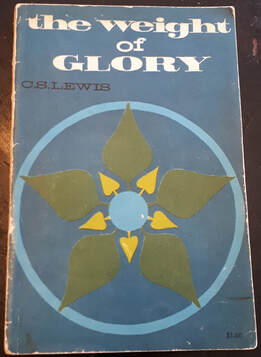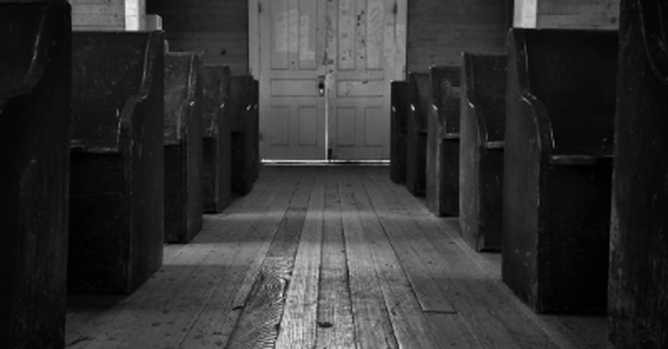|
My blog posts revolve around my interests and vocation as a historian: the intersection of history and contemporary church life, the intersection of history and contemporary politics, serendipitous discoveries in archives or on research trips, publications and research projects, upcoming conferences, and speaking engagements.
I sometimes blog for two other organizations, the Canadian Baptist Historical Society and the Centre for Post-Christendom Studies. The views expressed in these blogs represent the views of the authors, and not necessarily those of any organizations with which they are associated. |
|
I was recently going through some of my dad’s possessions and found a small book that contained a collection of C. S. Lewis’ essays entitled The Weight of Glory (originally published in 1949). Chapter one of the book is named “The Weight of Glory” and it was an address originally delivered as a sermon in Oxford during the dark days of the Second World War.
There is much to commend in the brief sermon-turned-chapter. However, the two things that immediately came to mind related to technology and secularism.
0 Comments
Two things happened last week that quickly became related in my mind.
First, I finished my course entitled “The World and Writings of John Wesley” by looking at what happened in subsequent generations after the death of John Wesley. The story has some highs – such as widespread nineteenth century revivals or the globalization of Methodism in the twentieth century. It also has some lows – such as the demise of Methodism in the West. And I used some commentary by David Hempton to provide some analysis, especially of the lows. Second, I started reading about the 2021 Canadian census results that portrayed a continuation of the decline of Christianity in Canada. Brian Clarke and Stuart Macdonald have previously noted that decline,[1] and the most recent census simply reinforces that narrative of downward trajectory.[2] What linked the two things in my mind was the reality of a downward spiral of a once vibrant faith. The post-Christendom reality of the Western world has been readily identified by a host of scholars and has been lamented by the faithful who sit in empty pews on Sunday. So what went wrong? “Hardly anything worse could take place in Germany.” Not exactly the words you would expect to hear about the treatment of Canadian citizens in their own judicial system, but those feelings describe the experience of some Canadians during the last world war.
A while ago I was doing research at the United Church Archives, Vancouver School of Theology, BC, and came across some letters dealing with the United Church’s attempts to assist some of its members in trouble with authorities over their conscientious objector status. We Canadians often like to think that we are exceptional, with a special respect for minority opinions. Yet, as the following account of a conscientious objector (CO) in the Second World War indicates, Canadian respect for dissent and issues related to conscience have been abandoned in a time of crisis. |
Archives
May 2024
|



 RSS Feed
RSS Feed
